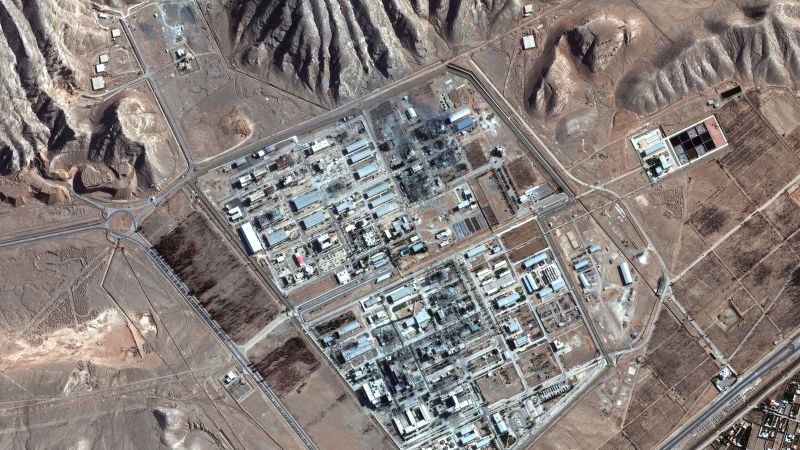Iranian President Masoud Pezeshkian has sanctioned a law to suspend cooperation with the International Atomic Energy Agency (IAEA), a decision poised to obscure Tehran’s nuclear activities. The move, announced on Wednesday, follows the Iranian parliament’s recent approval of the legislation, which accuses the IAEA of colluding with Israel to facilitate attacks on Iran’s nuclear sites—a charge the agency firmly denies.
President Pezeshkian has directed Iran’s Atomic Energy Organization, the Supreme National Security Council, and the Ministry of Foreign Affairs to implement the law, according to the state-run news agency IRNA. The specifics of when and how this law will be executed remain unclear, but the decision could potentially enable Iran to advance its nuclear program without the oversight of the IAEA.
Background and Repercussions
Iran is a signatory to the Non-Proliferation Treaty (NPT), which mandates member states to permit monitoring and inspections of nuclear facilities to verify the peaceful intent of their nuclear programs. The IAEA, tasked with these inspections, expressed its concern over Iran’s recent legislative move. An IAEA spokesperson stated, “We are aware of these reports. The IAEA is awaiting further official information from Iran.”
This development follows a period of heightened military tensions. Last month, Israel launched an unprecedented attack on Iranian targets, including its nuclear facilities and key scientific personnel. The United States subsequently conducted strikes on Iranian nuclear sites in Natanz, Isfahan, and Fordow, supporting Israel’s actions. A 12-day conflict ensued, concluding with a ceasefire last week.
International and Domestic Reactions
Iran claims its nuclear facilities sustained significant damage due to these attacks but insists on continuing uranium enrichment for its “peaceful” nuclear program. The IAEA recently reported that U.S. strikes did not inflict irreversible damage, suggesting Tehran could resume uranium enrichment “in a matter of months.”
Days before the Israeli assault, the IAEA declared its inability to confirm the exclusively peaceful nature of Iran’s nuclear activities, noting that Iran was enriching uranium to near weapons-grade levels. This revelation prompted an IAEA resolution censuring Iran, which ignited indignation within the Iranian government. Officials accused the agency and its Director General, Rafael Grossi, of partiality.
“Iran’s Supreme Leader Ayatollah Khamenei has consistently refuted claims that Iran is developing nuclear weapons, asserting that weapons of mass destruction are prohibited under Islamic law.”
Historical Context and Future Implications
The current situation echoes past tensions that have shaped Iran’s nuclear narrative. In 2018, the United States, under President Donald Trump, withdrew from the nuclear agreement brokered during the Obama administration, prompting Iran to enrich uranium to higher levels. This historical context underscores the fragile nature of nuclear diplomacy in the region.
The suspension of cooperation with the IAEA could have far-reaching implications. Without international oversight, Iran’s nuclear activities may escalate regional tensions and provoke further international sanctions. Experts warn that this could lead to a new arms race in the Middle East, undermining global non-proliferation efforts.
As the world watches closely, the international community may need to explore diplomatic avenues to prevent further escalation. The potential for renewed negotiations or alternative diplomatic strategies could shape the future of Iran’s nuclear ambitions and regional stability.
In conclusion, Iran’s decision to halt cooperation with the IAEA marks a significant shift in its nuclear policy. The coming months will be crucial in determining whether diplomatic efforts can bridge the growing divide or if the region will face increased instability.
